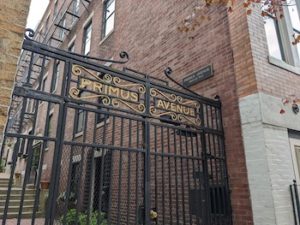
*Primus Hall was born on this date in 1756. He was a soldier and schoolmaster. He was born into slavery in Boston to Prince and Delia Hall, a domestic servant and an enslaved man owned by William Hall until his freedom in 1770.
His father, Prince Hall, was an abolitionist, Revolutionary War soldier, and founder of the Prince Hall Freemasonry. As an enslaved person's son, he was "bound out" to Ezra Trask, an Essex County shoemaker, as a baby. An arrangement was made to teach Primus to be a shoemaker, and due to health issues, Hall was given his freedom. He worked as a truckman and farmer in Salem, Massachusetts, until 1776.
Primus Hall was a Revolutionary War soldier, having enlisted at 19 in the 5th Massachusetts Regiment. His father encouraged enslaved and freed blacks to serve the American colonial military. He believed that if blacks were involved in founding the new nation, it would aid in attaining freedom for all blacks. Although the colonial army did not initially accept African soldiers, the Continental Army relented after the British Army allowed black men to join the army in exchange for their freedom. After the war, Hall met Timothy Pickering, a Quartermaster General and politician. Hall offered to work for Pickering, who hired him as a steward. Hall transported supplies and letters between the two locations during the summer of 1781.
Hall married his first wife, Phebe Robson, on May 2, 1784, and they had a daughter named Flora, who died in 1799. Robson died at the age of 47 in 1808. Hall held her funeral at their home on Southack St. In 1798, he established a school for black children in his home, and afterward, the school moved to the African Meeting House. Primus Hall was active in signing and submitting petitions to the state legislature regarding slavery starting in 1788. He remarried on January 17, 1810, to Martha Gardiner, with no mention of any children. Martha died seven years later, on January 20, 1817, aged 36. Later that same year, on October 29, 1817, Hall married Ann Clark. The couple had five children, but records indicate none survived past 19.
Hall fortified Boston Harbor's Castle Island during the War of 1812. He supported William Lloyd Garrison's abolitionist viewpoints by the 1830s. He raised funds until 1835 for the school. In the 1830s, Hall filed a suit for a pension as a Revolutionary War soldier because the pension commissioner had denied him a pension. It was assumed that Hall had been a servant as a black man and had not participated in battles. In his petition, Hall gave an account of his engagement in New York and New Jersey battles, including when he followed two enemy soldiers for half a mile and took them prisoner. After his second enlistment was completed, "to the earnest request of George Washington, he volunteered for the further term of six weeks." After his service in Princeton and Morristown was completed, George Washington signed his honorable discharge.
Whites who had served with him provided testimony that Hall had served as any other soldier and that he had the respect of officers and other soldiers. The commissioner was overruled, and Hall received a pension. His suit was filed under the name Prius Hall, alias Trask, and was H.R. 318 of 1838. On June 28, 1828, he was approved to receive a pension of $60 per year. His wife Ann applied for benefits under the Widow's Pension Application file #W.751. Primus Hall died on March 22, 1842, in Boston. His obituary read that he "was well known, particularly to the younger portions of our citizens, to whom he was in the habit of recounting scenes of the Revolutionary War."